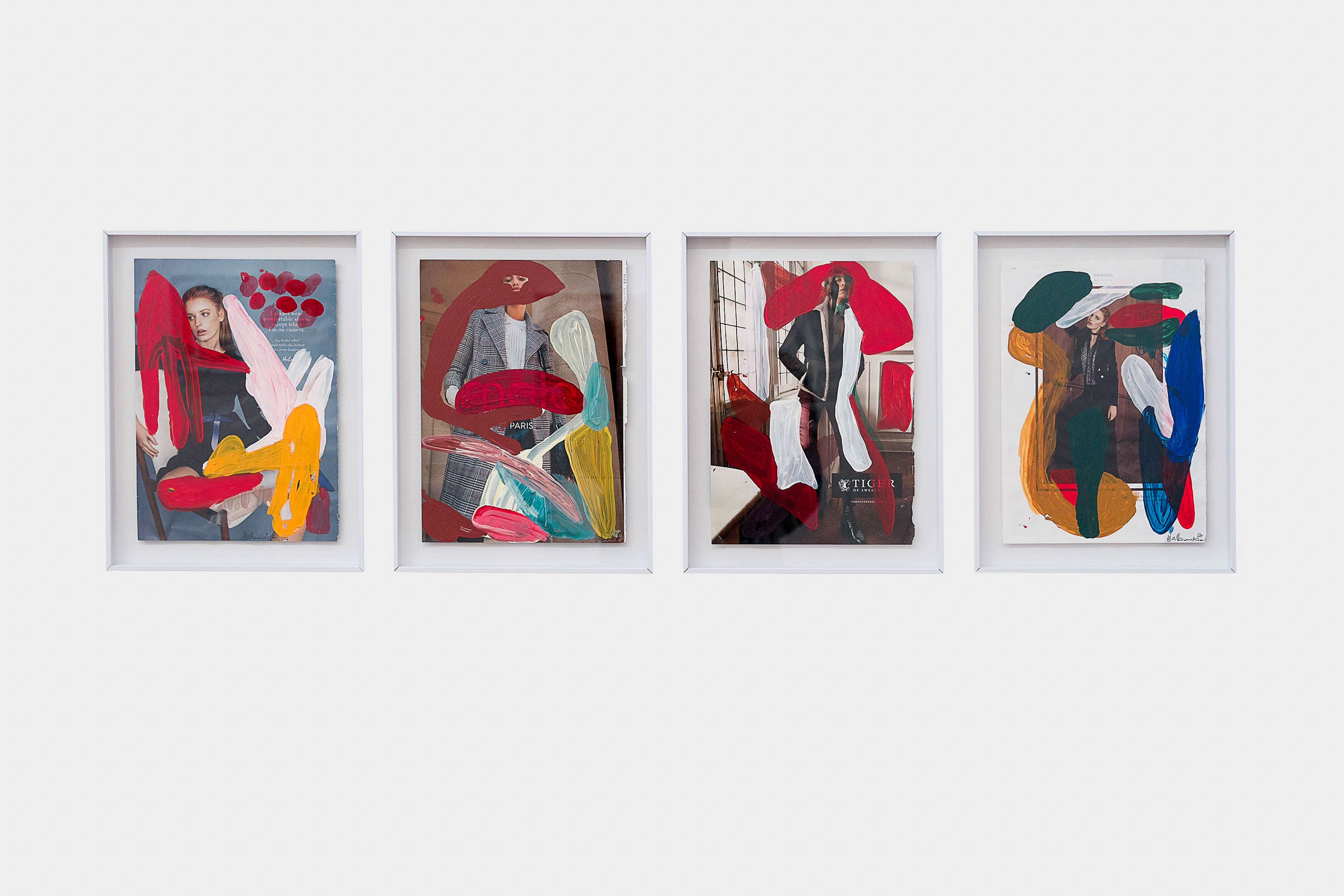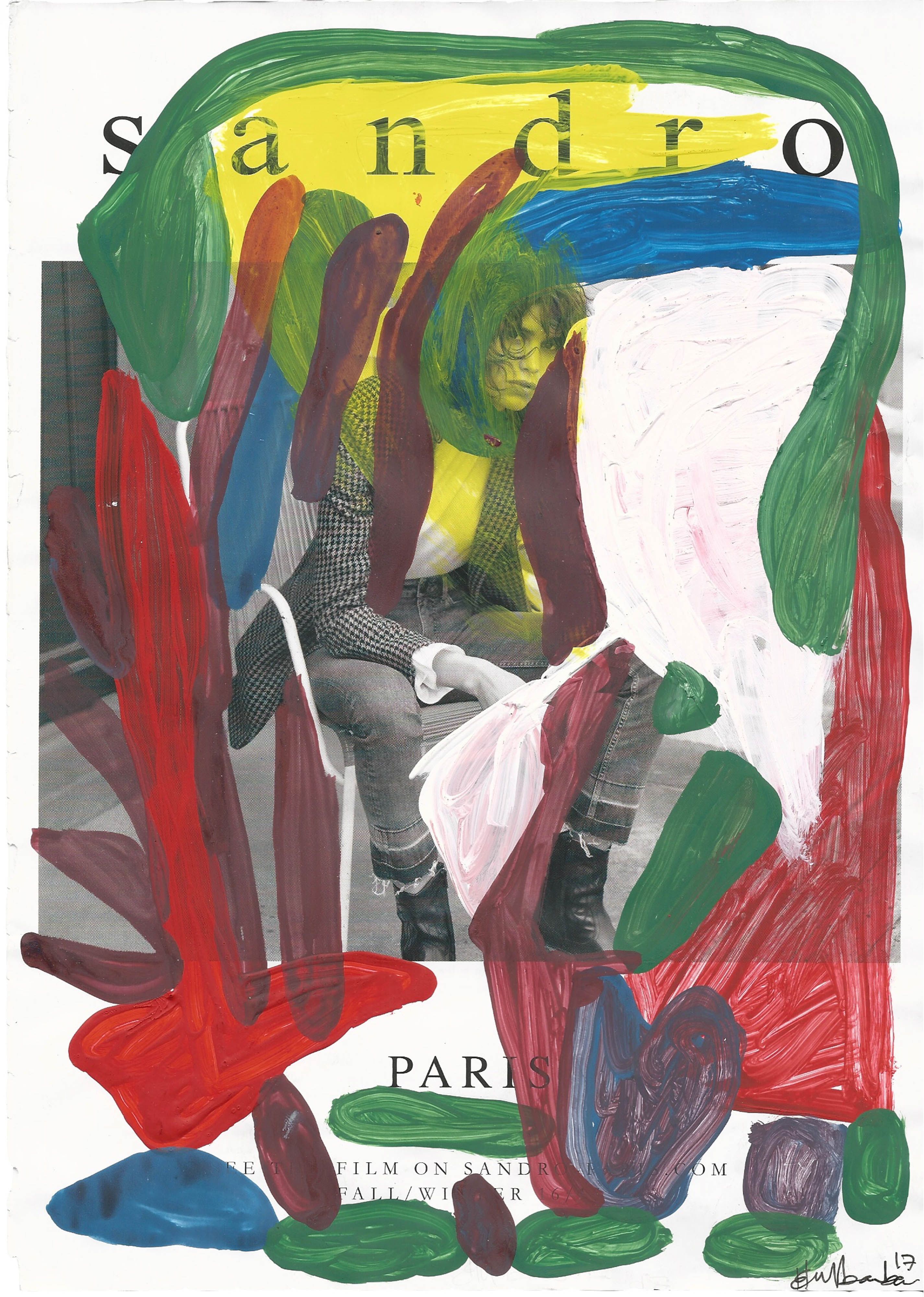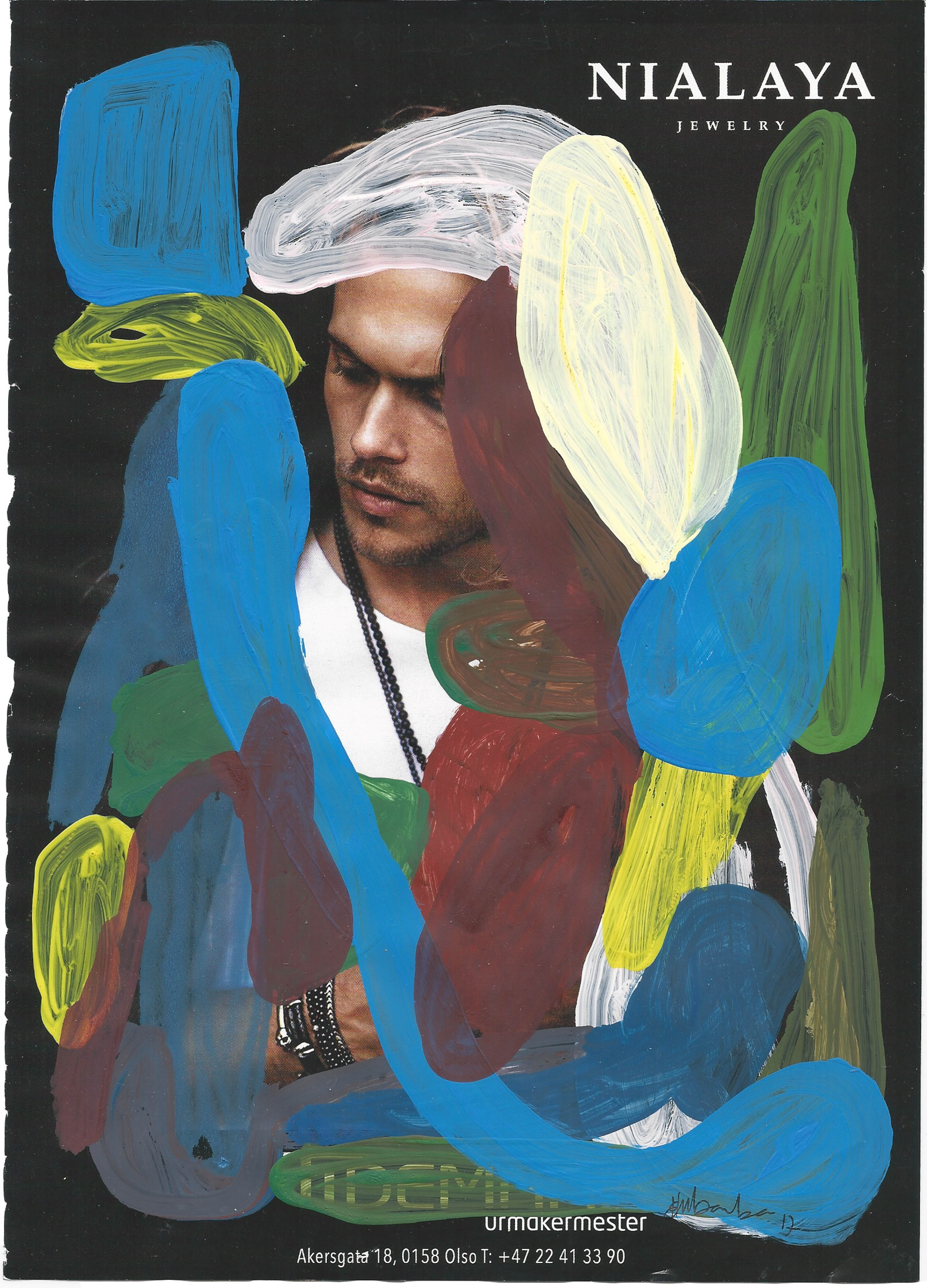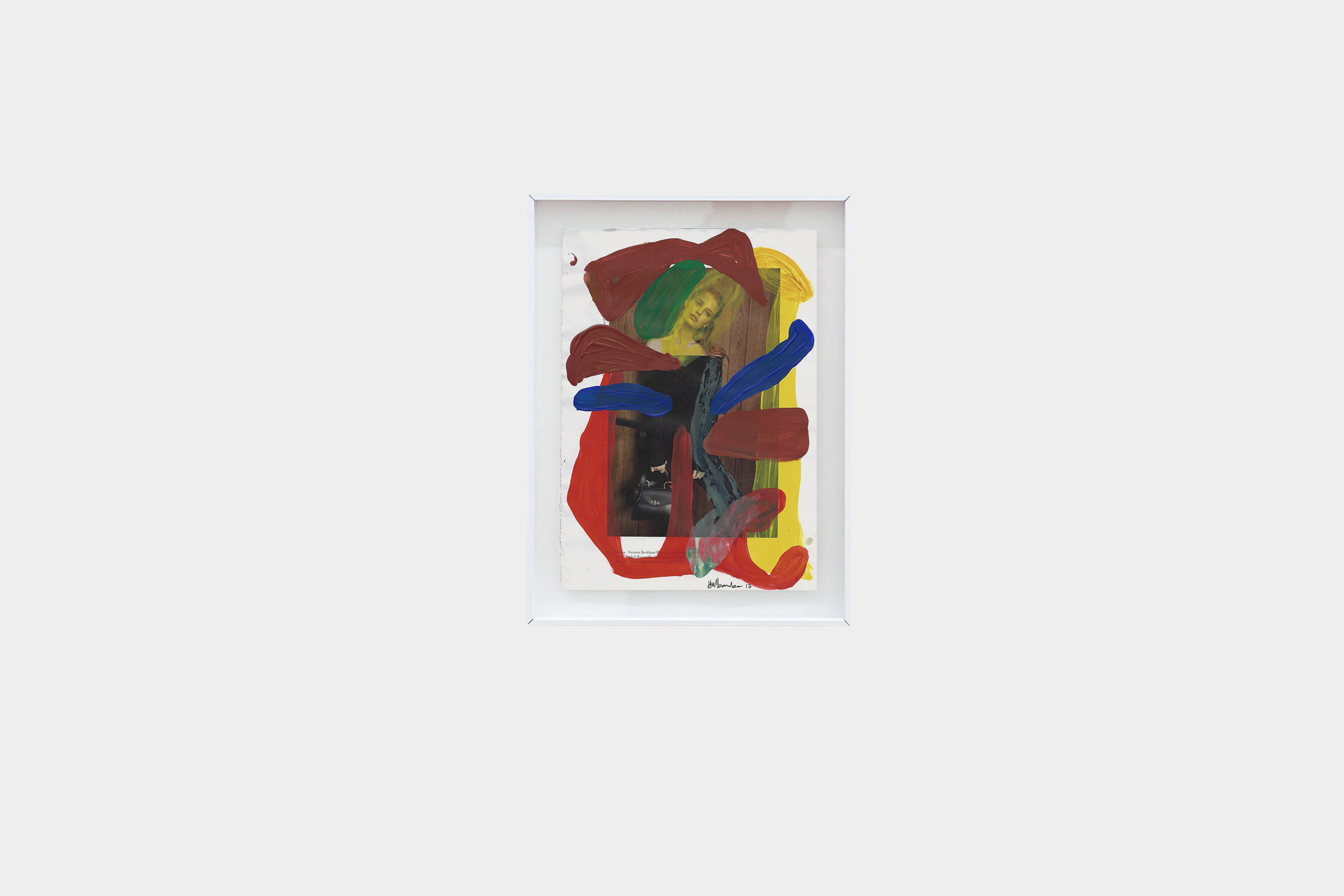










╪Hâ╪Hâsa, Herman Mbamba’s first exhibition with the gallery, is comprised of a series of abstract paintings on pages torn from Norwegian fashion magazines. These paintings, while small in scale, are executed in Mbamba’s typical style with brightly coloured, amorphic shapes arranged in vivid compositions that both interact with and obliterate the imagery found on his chosen surface material. According to Mbamba, the found imagery he uses is not destroyed but rather “reorganised” through the act of appropriation. While the magazine pages in their original state are loaded with carefully contrived symbolism designed to provoke predetermined experiences in the viewer, Mbamba’s superimposed paintings shift and interrupt their meaning, creating opportunity for multiple readings and interpretations. By adding layers of paint to the glossy surface of fashion adverts in gestural brushstrokes, Mbamba enters into dialogue with the content of the advertisements, which are in his view reflective of Norway’s socio-political and cultural landscape.
The title, ╪Hâ╪Hâsa, translates from the artist’s mother tongue, Nama, to mean ‘essential’. In this body of work, Mbamba grapples with the notion of essentiality, and its relevance to him as both an artist and a diasporan. The paintings are executed in a primary visual language of colour and form, with particular shapes reoccurring like motifs throughout the series. Together with the gestural quality of Mbamba’s brush marks, the repetition of these organic forms is almost rhythmic, and they appear to be in a constant state of flux. Conceptually, the works offer a critique of the political and social spaces that construct and define identity. Specifically, Mbamba’s works are a commentary on his experience of living on the social periphery in Norway, a country considered to have one of the highest standards of living. This popular view conflicts with his own feelings of isolation and othering, and his paintings are a response to this contradiction; a mechanism with which to survive the political, social and cultural realities of Norway. For Mbamba, they are an essential means of communication in an alienating environment.
Contrasting dramatically in scale is a single, large-scale painting completed by Mbamba while on residency in Namibia. Although employing a similar formal language, the abstract mural-like work depicts a crowded harmony of light and space, inspired by the artist’s outdoor studio.
The title, ╪Hâ╪Hâsa, translates from the artist’s mother tongue, Nama, to mean ‘essential’. In this body of work, Mbamba grapples with the notion of essentiality, and its relevance to him as both an artist and a diasporan. The paintings are executed in a primary visual language of colour and form, with particular shapes reoccurring like motifs throughout the series. Together with the gestural quality of Mbamba’s brush marks, the repetition of these organic forms is almost rhythmic, and they appear to be in a constant state of flux. Conceptually, the works offer a critique of the political and social spaces that construct and define identity. Specifically, Mbamba’s works are a commentary on his experience of living on the social periphery in Norway, a country considered to have one of the highest standards of living. This popular view conflicts with his own feelings of isolation and othering, and his paintings are a response to this contradiction; a mechanism with which to survive the political, social and cultural realities of Norway. For Mbamba, they are an essential means of communication in an alienating environment.
Contrasting dramatically in scale is a single, large-scale painting completed by Mbamba while on residency in Namibia. Although employing a similar formal language, the abstract mural-like work depicts a crowded harmony of light and space, inspired by the artist’s outdoor studio.